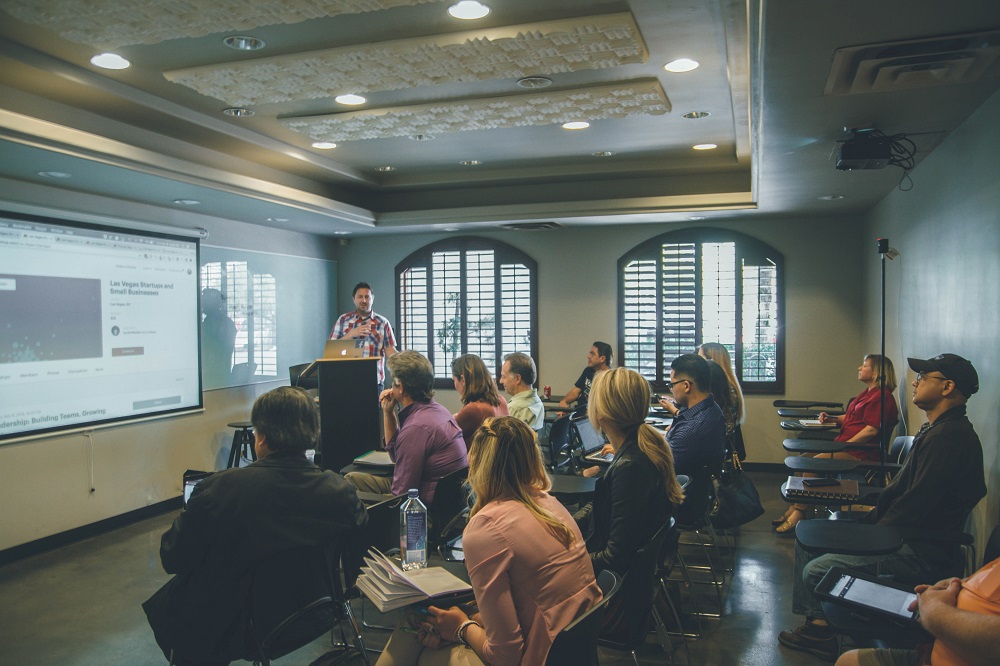Are you tired of spending hours studying and still not retaining the information? Do you envy those students who seem to learn things effortlessly? Well, the good news is that there are tips and tricks to help you learn things fast. In this blog post, we will share insights from successful students on how they manage to grasp concepts quickly. From finding the right learning method for you to staying motivated throughout your study sessions, we’ve got all the secrets covered. So buckle up and get ready to learn how to become a quick learner!
Decide What You Want to Learn
The first step to learning anything quickly is to decide what you want to learn. This may seem obvious, but it’s an important step that many people overlook. Without a clear goal or objective in mind, it becomes difficult to know where to start and what steps to take.
So, how do you decide what you want to learn? Start by thinking about your interests and passions. What topics excite you? What skills do you wish you had? Make a list of these things and then narrow it down to the ones that are most important or relevant for your current situation.
Once you’ve identified your learning goals, take some time to research them further. Look for resources such as books, online courses, or local classes that can help you achieve those goals. Consider asking experts in the field for advice on where to start or what materials they recommend.
It’s also essential not only deciding on what subject matter but also narrowing down specific parts of each subject area that will be useful. For example: while studying finance could be beneficial; however understanding specifically accounting practices would be more helpful if one has plans of working within business financial administration.
In conclusion: Deciding on what exactly needs learning helps avoid wasting valuable time while providing direction with tangible results along the way!
Find a Method That Works for You
When it comes to learning something new, finding a method that works for you is essential. Everyone learns differently and what may work for one person, may not necessarily work for another. So how can you find the best way to learn?
Firstly, identify your learning style. Do you prefer visual aids such as diagrams or videos? Or do you prefer reading and taking notes? Understanding your preferred learning style can help in choosing a suitable method.
Next, try out different methods until you find the one that suits you best. For instance, if listening helps, consider podcasts or audiobooks. If practice makes perfect for you, then hands-on activities are likely your best bet.
Another thing to keep in mind is to break down complex concepts into smaller parts so they’re easier to understand and retain. This can be done through summarizing or making flashcards.
Don’t forget about technology! There are various apps available that cater to different styles of learners like Duolingo for language learners or Khan Academy which offers free online courses on various subjects.
Ultimately finding the right method takes time but investing in understanding your own learning style will make all the difference when it comes to acquiring new knowledge quickly and effectively!
Set Some Ground Rules
Setting some ground rules is an essential step to learning things fast. Before starting your learning journey, it’s important to identify potential distractions and obstacles that can slow down your progress. Here are some helpful tips on setting ground rules:
1. Create a dedicated space for learning: Having a designated study area can help you focus and minimize distractions.
2. Eliminate any potential disruptions: Turn off notifications from social media, phone calls, and emails during your study time.
3. Set a schedule: Establishing a routine can help you stay organized and motivated.
4. Avoid multitasking: Focus on one task at a time to maximize productivity.
5. Take care of yourself: Get enough sleep, eat well-balanced meals, and exercise regularly to improve cognitive function.
By setting these ground rules before embarking on your learning journey, you’ll be more likely to achieve success quickly and efficiently.
Make a Plan
When it comes to learning something new, having a plan can make all the difference. Without one, you may find yourself feeling overwhelmed and unsure of where to start. Here are some tips for creating an effective plan that will help you learn things fast.
First, set clear and realistic goals for what you want to achieve. Break them down into smaller, manageable steps so that they don’t feel too daunting or overwhelming.
Next, figure out the best way for you personally to learn and retain information. Do you prefer reading books or watching videos? Taking notes by hand or typing them out? Experiment with different methods until you find what works best for you.
Once you have a sense of your preferred learning style, create a schedule that incorporates regular study sessions into your daily routine. Be sure to leave time for breaks and relaxation as well – overloading yourself is counterproductive!
Consider finding a study partner or accountability buddy who can help keep you on track and motivated throughout the process.
Be flexible in your approach – if something isn’t working for you, don’t be afraid to adjust your plan accordingly. With dedication and persistence, anything is possible!
Start Learning
Starting the learning process can be overwhelming, especially when there’s a lot to cover. However, with the right mindset and approach, you can start mastering new skills in no time.
One way to begin is by breaking down what you need to learn into smaller pieces. When tackling something new, it’s easy to get lost in the details or feel like there’s too much information to absorb at once. By taking things step-by-step, you make it easier for yourself to understand each part of the puzzle before moving on.
Another important aspect of starting your learning journey is setting goals for yourself. This could mean deciding how many hours per week you’ll dedicate to studying or aiming for specific milestones along the way. Having concrete objectives will help keep you accountable and motivated as you progress.
It’s also helpful to find resources that work well for your learning style. Some people prefer textbooks while others might prefer video tutorials or hands-on practice exercises. Experimenting with different formats can help identify what works best for you so that your study sessions are productive and enjoyable.
Don’t forget that mistakes are an inevitable part of the learning process – everyone makes them! Rather than getting discouraged when things don’t go perfectly at first, use these moments as opportunities for growth and refinement. With persistence and dedication, anything is possible!
Stay Motivated
Motivation is key when it comes to learning things quickly. Without motivation, it’s easy to lose focus and give up too soon. Here are some tips on how to stay motivated while you’re learning:
Firstly, set goals and reward yourself for achieving them. This will help keep you on track and provide a sense of accomplishment as you progress through your learning journey.
Secondly, surround yourself with positive people who support your efforts and encourage you along the way. Negative influences can drain your energy and make it harder to stay motivated.
Thirdly, take breaks regularly but don’t let them become distractions that derail your learning efforts. Use these breaks wisely by doing something enjoyable or relaxing that recharges your batteries without taking away from study time.
Remind yourself why you started this journey in the first place. Keep a clear picture in mind of what inspired you to learn this new skill or subject matter so that when times get tough, you can draw upon that inspiration for renewed motivation.
In summary, staying motivated requires setting goals, surrounding yourself with positivity, taking regular breaks without getting distracted and reminding yourself of what inspired you in the first place!
Take Breaks
Taking breaks is an essential part of learning. It can be tempting to power through hours of studying or practicing without taking any time off, but this approach can quickly lead to burnout and decreased productivity.
Studies have shown that taking regular breaks from a task can actually improve focus and increase overall performance. When you take a break, your brain has the opportunity to rest and recharge, which allows for better retention of information and improved creativity.
It’s important to note that not all breaks are created equal. Scrolling through social media or watching TV may feel relaxing in the moment, but these activities do little to rejuvenate your mind. Instead, try taking a short walk outside, doing some stretching exercises, or engaging in a hobby you enjoy.
The length and frequency of your breaks will depend on your personal preferences and the nature of the task at hand. Some people find it helpful to take short breaks every 25-30 minutes while others prefer longer blocks of uninterrupted work followed by more extended periods of rest.
Ultimately, finding what works best for you is key. Experiment with different types and lengths of breaks until you discover what helps you stay focused, motivated, and productive over the long haul.
Test Yourself
Testing yourself is a crucial step in the learning process, as it helps you identify areas where you need to focus more. Taking quizzes or practice exams can help you evaluate your knowledge and retention of information.
One way to test yourself is by using flashcards. Flashcards are an effective tool for memorization and recall, especially for vocabulary words or formulas. You can create your own flashcards or use online resources such as Quizlet.
Another way to test yourself is by teaching others what you’ve learned. This not only reinforces your own understanding but also allows you to explain concepts in a clear and concise manner.
Additionally, taking breaks between study sessions and testing yourself periodically can improve long-term memory retention. It’s important to give your brain time to rest and consolidate new information before moving on to new material.
Testing yourself is an essential part of the learning process that enables you to assess your progress and adjust accordingly.
Conclusion
Learning is a crucial aspect of our lives, and the ability to learn new things quickly can make a significant difference in achieving our goals. By following the tips from successful students mentioned in this article, you can improve your learning process and acquire knowledge more efficiently.
Remember always to decide what you want to learn, find a method that works for you, set some ground rules, make a plan, start learning, stay motivated, take breaks regularly and test yourself consistently. These steps will help maximize your efforts and help you achieve success faster than ever before.
Therefore if you’re looking for ways on how to learn things fast with greater ease then follow these simple steps discussed here today!








